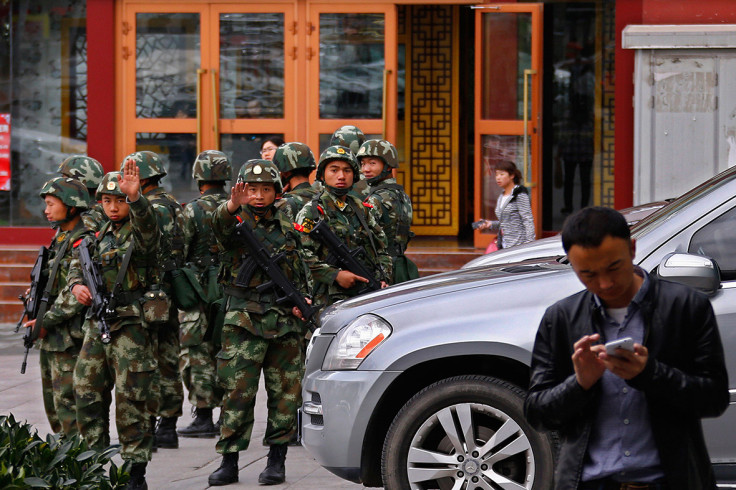China Urumqi Suicide Bombing: Police Identify Suspects as Religious Extremists

Five suspects for a bombing attack in the city of Urumqi in Xinjiang province have been identified by the police, the state-run Xinhua news agency said.
Nurahmat Ablipiz, Memet Memtimin, Raghimjan Memet, Memtimin Mahmat and Ablet Abdukadir had been influenced by "religious extremism", said the agency.
All five were earlier reported to have been killed in the attack, but one of them has now been arrested. He is being detained in Bayingolin prefecture, south of Urumqi.
The deadly attack at a vegetable market in Urumqi killed 39 people and injured over 90. Assailants drove two vehicles into a crowd and threw explosives. One of the vehicles exploded.
The suspects were brainwashed into religious extremist beliefs and allegedly took part in illegal religious activities, apart from watching and listening to audio and video material propounding terrorist violence, Xinhua said.
"Judging from the many terrorist attacks that have taken place and the relevant perpetrators, they have received support from terrorist groups outside China's borders as well as religious extremist propaganda spread via the internet," Chinese Foreign Ministry spokesman Hong Lei said at a press conference.
Pan Zhiping, a retired expert on Central Asia at Xinjiang's Academy of Social Science, told Reuters that the attack was the region's deadliest yet.
China has now announced a one-year campaign against the militants in the restive Xinjiang province. State media said the authorities will "focus on terrorists and religious extremist groups, gun and explosive manufacturing dens and terrorist training camps".
China says that the administration is working to develop Xinjiang province and seeks cooperation from locals, but the Uighurs feel that the government is antagonistic to their traditions.
Uighur separatists have been blamed by China for this and other terrorist attacks in the country over the past year which have claimed at least 180 lives.
Previous attacks
In April, a bomb and knife attack at a railway station killed three people and injured dozens. The attack coincided with the visit of President Xi Jinping to the region.
Two months ago, a group of masked attackers dressed in black indiscriminately slashed commuters at Kunming Railway station in southwest China, killing 29 and injuring 143.
Last October, a car crashed in Tiananmen Square in Beijing, bursting into flames and killing five people. A Filipino man and a Chinese citizen who were nearby were killed, as were three people in the car, including the driver, his wife and mother.
In 2009, raging tensions between the Han Chinese and the Uighur minority led to fierce riots in Xinjiang, claiming at least 150 lives.
© Copyright IBTimes 2025. All rights reserved.





















